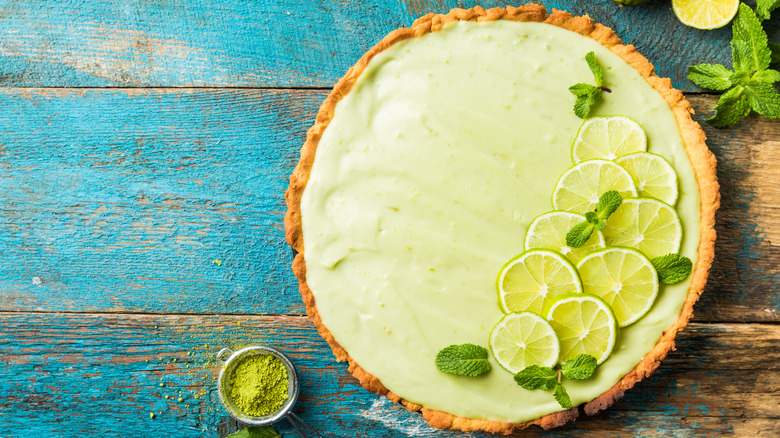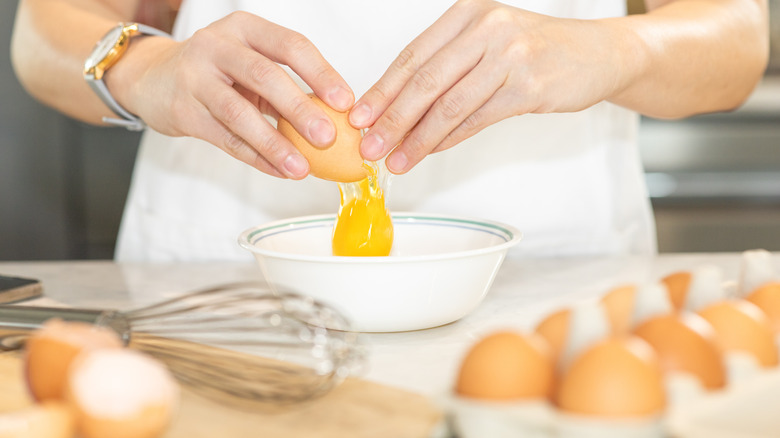Why You Shouldn't Rush Key Lime Pie
Here in America, we love our fast food, with 83% of families eating it at least once a week, according to The Barbecue Lab. It's cheap, easy, and generally filled with delicious ingredients that keep people coming back for more. Even when cooking at home, dinner ideas are full of tips and tricks to make the process move along faster. For example, have you heard of adding baking soda to onions to caramelize them faster, or using instant pudding to quickly create homemade mousse?
While we're all for saving some time, not all dishes benefit from increased cooking speed. In fact, some foods need a little more nurturing and turn out better when they've had time to marinate in their own juices, so to speak. This is the whole concept behind popular slow cookers like Crock Pots. According to The Spruce Eats, slow cookers help flavors distribute evenly, reduce the chance of burning food, and tenderize tougher meats.
But not all foods need to be made in a Crock Pot to reap the benefits of slow cooking, and as it turns out, key lime pie is one dish that thrives in a low-temperature environment.
Coagulated eggs can ruin the texture
To make the most pristine key lime pie, Food & Wine recommends baking it at 200 degrees Fahrenheit for up to an hour. So why the wait? Pastry chef Sebastien Thieffine told the outlet, "Things boil at 212, so at 200 degrees you have a safety net and it never boils." While that makes sense conceptually, what's really the problem if your pie is brought to a boil?
Besides the fact that you don't want bubbles of pie filling exploding in your oven (you want to eat the pie, not scrub it off your oven walls), key lime pie is made with eggs, which can thicken and create an irreversible texture change if cooked incorrectly (via Love Food Love Science). Coagulation in eggs isn't always a bad thing, and as The Incredible Egg points out, it's often necessary for baking pies, cheesecakes, and other desserts that require a specific texture. When heat is applied to eggs, they can become more gelatinous, which creates thickness and richness. The problem, however, is that too much heat can cause the proteins in an egg to dry out, which leads to toughness and chewiness (via The Exploratorium).
That's not what we want, as anyone who has tasted the silky tartness of key lime pie knows. So when making it at home, don't rush key lime pie — let it take its time at a nice and slow 200 degrees Fahrenheit. It will be worth the wait.

